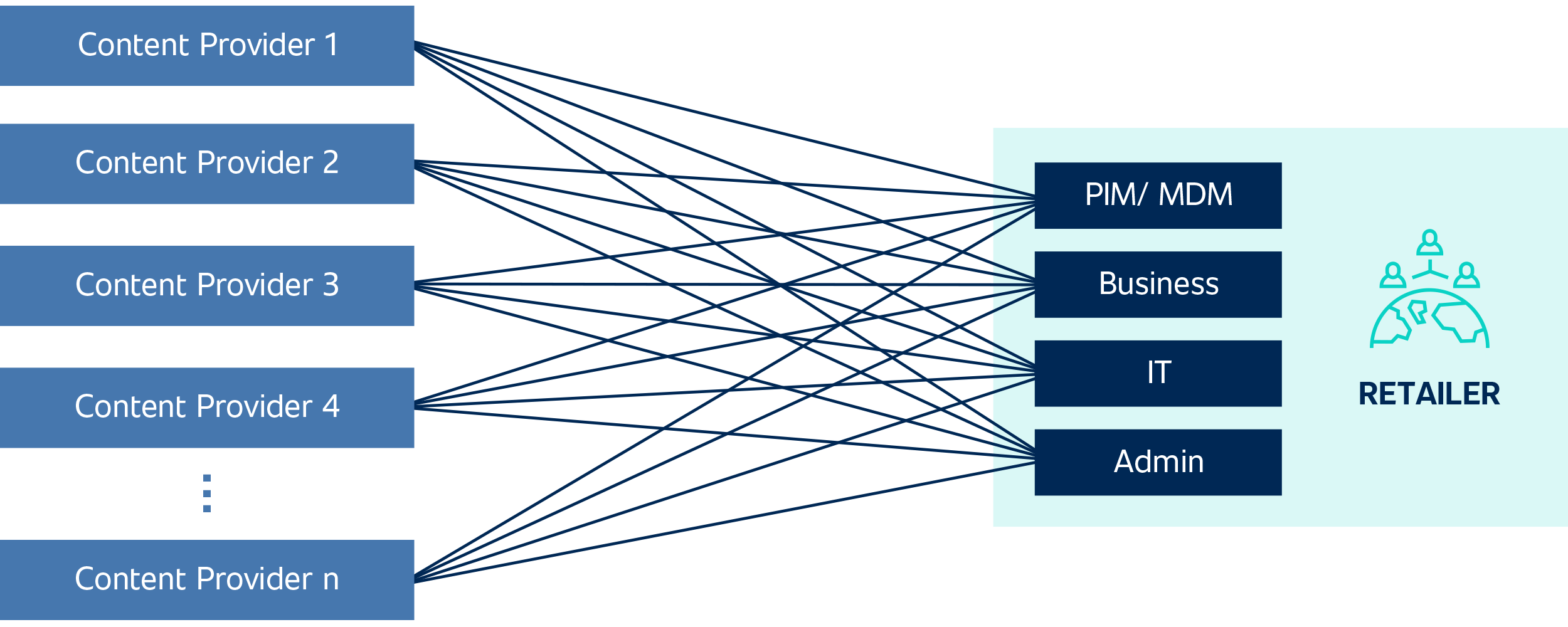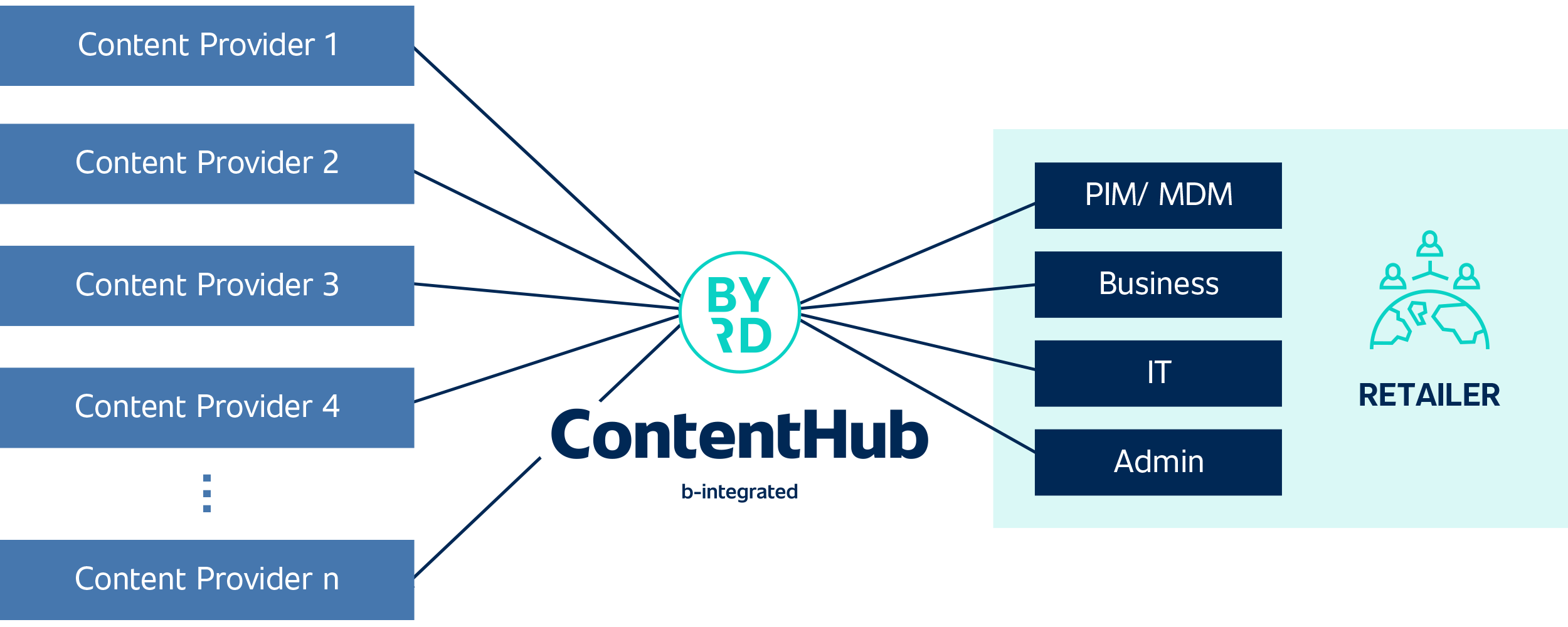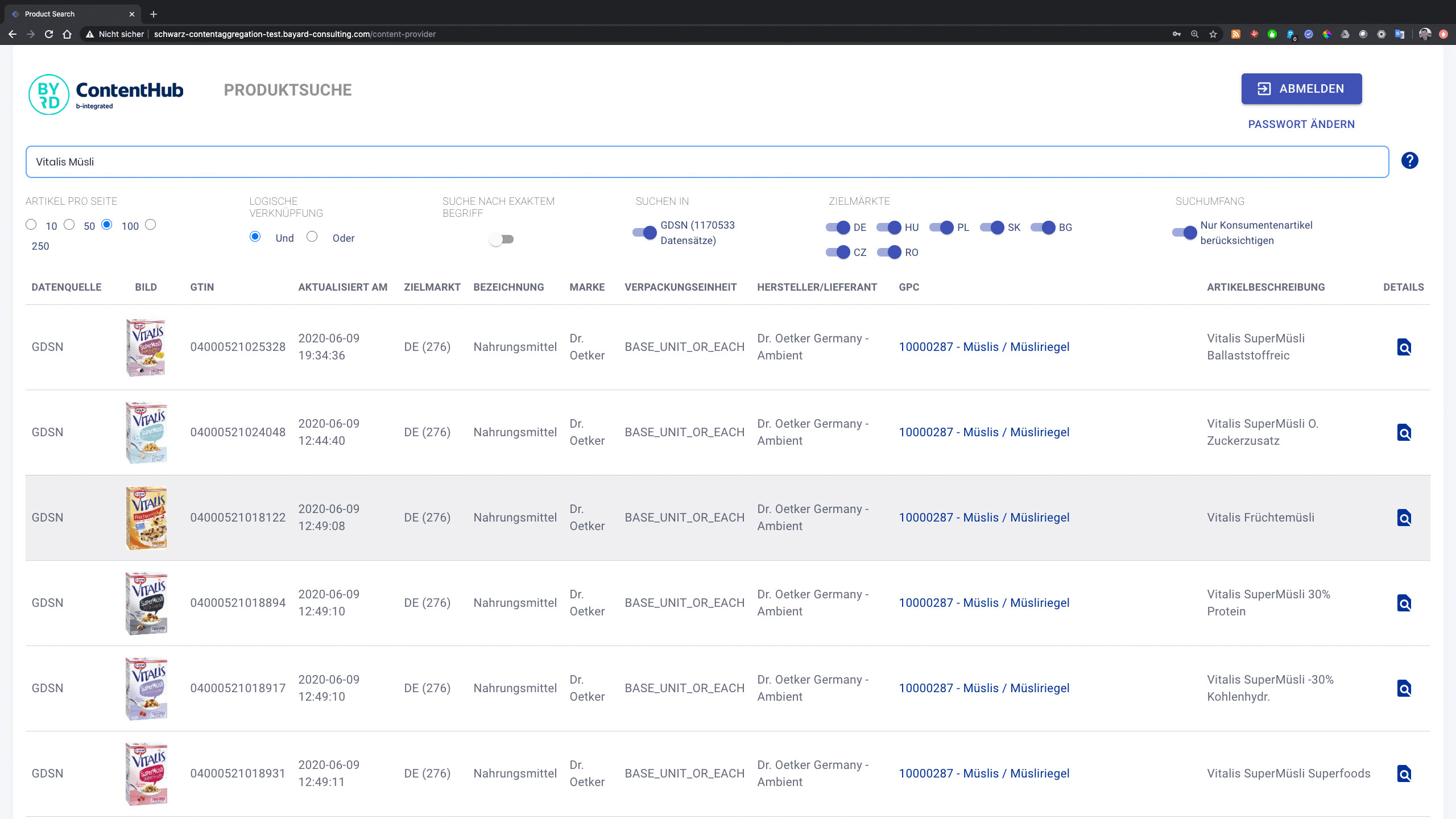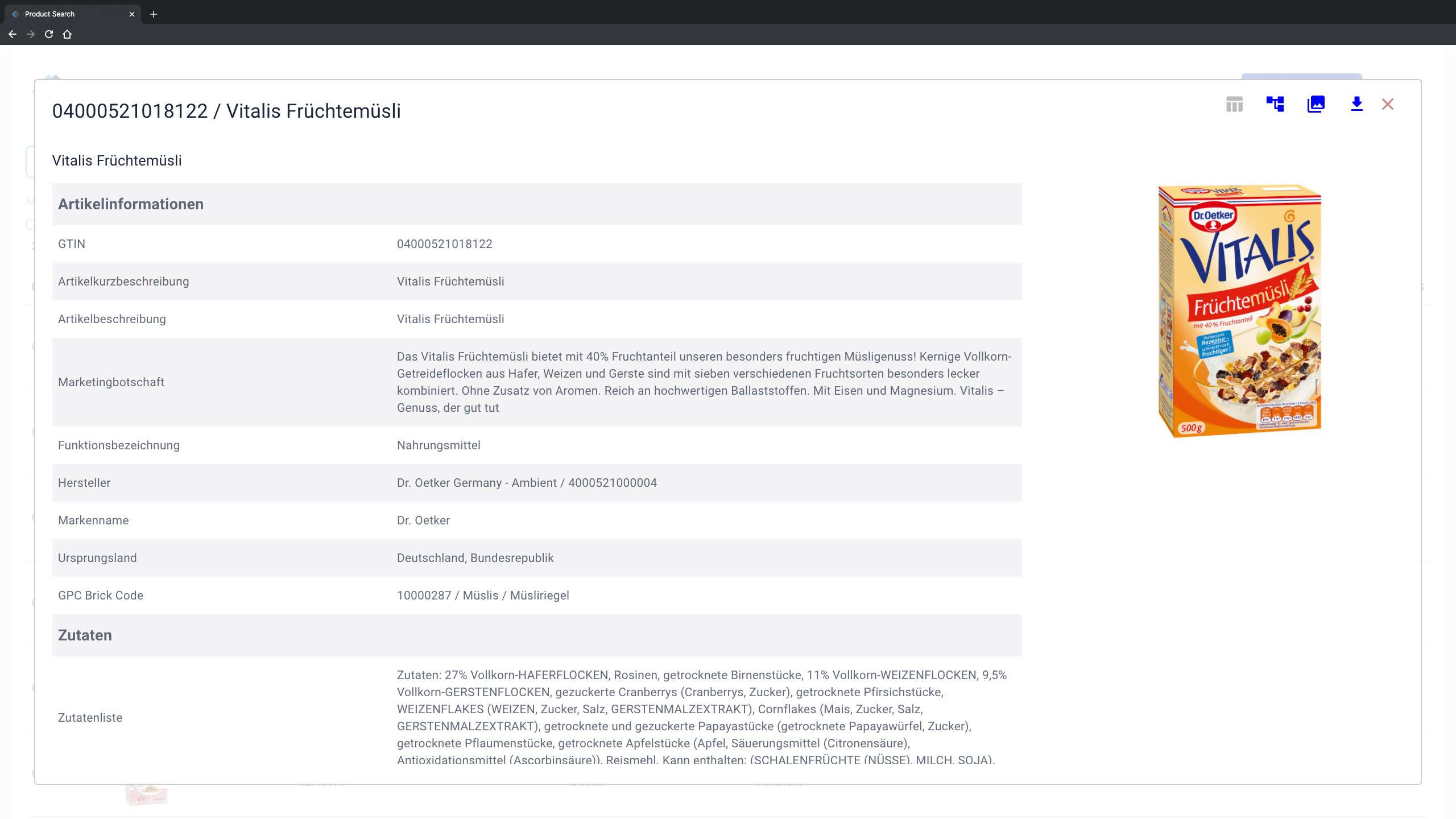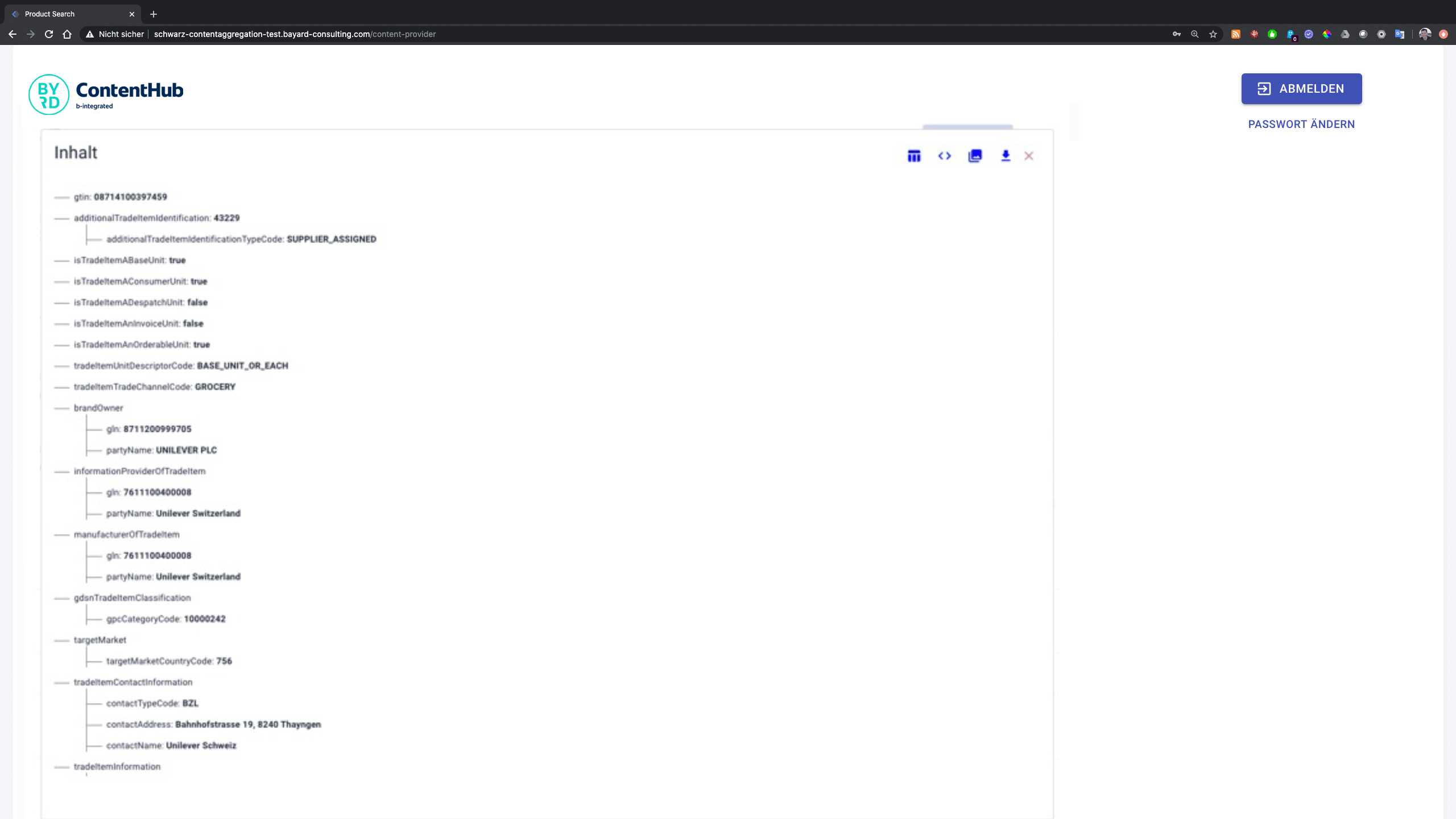The challenges encompass several levels at once:
Who provides suitable product content?
There are countless providers of product content: data pools, suppliers or manufacturers themselves, content providers, capture service providers, in-house departments, subsidiaries or affiliates, etc.
Who coordinates the stakeholders?
Coordinating all involved parties requires significant effort (content providers, business requirements, implementation by IT service providers or internal departments, operations, billing, etc.)
Who does the functional mapping of the content from the various content sources to the recipient data model?
Each content provider has its own data model, which must be understood, standardized and technically mapped to the data model of the merchant or data recipient.
Who is responsible for the technical implementation of the functional mapping?
The functional mapping of the data models must be technically implemented and regularly adapted in the event of functional changes. In addition, a continuous data supply to the receiving systems of the merchant or data recipient must be established in a processable, transformed format.
The challenges encompass several levels at once:
Who provides suitable product content?
There are countless providers of product content: data pools, suppliers or manufacturers themselves, content providers, capture service providers, in-house departments, subsidiaries or affiliates, etc.
Who coordinates the stakeholders?
Coordinating all involved parties requires significant effort (content providers, business requirements, implementation by IT service providers or internal departments, operations, billing, etc.)
Who does the functional mapping of the content from the various content sources to the recipient data model?
Each content provider has its own data model, which must be understood, standardized and technically mapped to the data model of the merchant or data recipient.
Who is responsible for the technical implementation of the functional mapping?
The functional mapping of the data models must be technically implemented and regularly adapted in the event of functional changes. In addition, a continuous data supply to the receiving systems of the merchant or data recipient must be established in a processable, transformed format.
Our solution for your Product Content!
In addition to the central technical platform, the following services are key to successful content provider connections:
Management
Research
Administration
Business Mapping
Technical Mapping
In addition to the central technical platform, the following services are key to successful content provider connections:
Management
- Central contact person for all customer departments
- Professional and technical requirements analysis
- Implementation and operation control
Research
- Market research: "Which content providers are available for specific product groups?"
- Development of a content procurement strategy for the required product groups
Administration
- Billing with content providers
- One invoice to the customer
- Professional and technical support
Business Mapping
- Development of functional mapping between the customer's data model and that of the respective content provider
- Impact analysis in case of release changes by the content provider
Technical Mapping
- Implementation of technical mapping
- Operation of the mapping
The technical architecture
The data model and data format are standardized according to the data recipient’s specifications, and the data query or data transport is provided in the form of an easy-to-use REST web service API. The Elasticsearch search engine is used for complex search queries, and a web-based frontend is available for manual searches in the received dataset.
All data from the connected content providers is cached in the original format in a database, so that there is no dependency on the transmission cadence and the scope of the data sources. This also means that no new data has to be requested from the content provider if mapping changes are needed or if another system has to be connected and initially filled.
The technical architecture
The data model and data format are standardized according to the data recipient’s specifications, and the data query or data transport is provided in the form of an easy-to-use REST web service API. The Elasticsearch search engine is used for complex search queries, and a web-based frontend is available for manual searches in the received dataset.
All data from the connected content providers is cached in the original format in a database, so that there is no dependency on the transmission cadence and the scope of the data sources. This also means that no new data has to be requested from the content provider if mapping changes are needed or if another system has to be connected and initially filled.
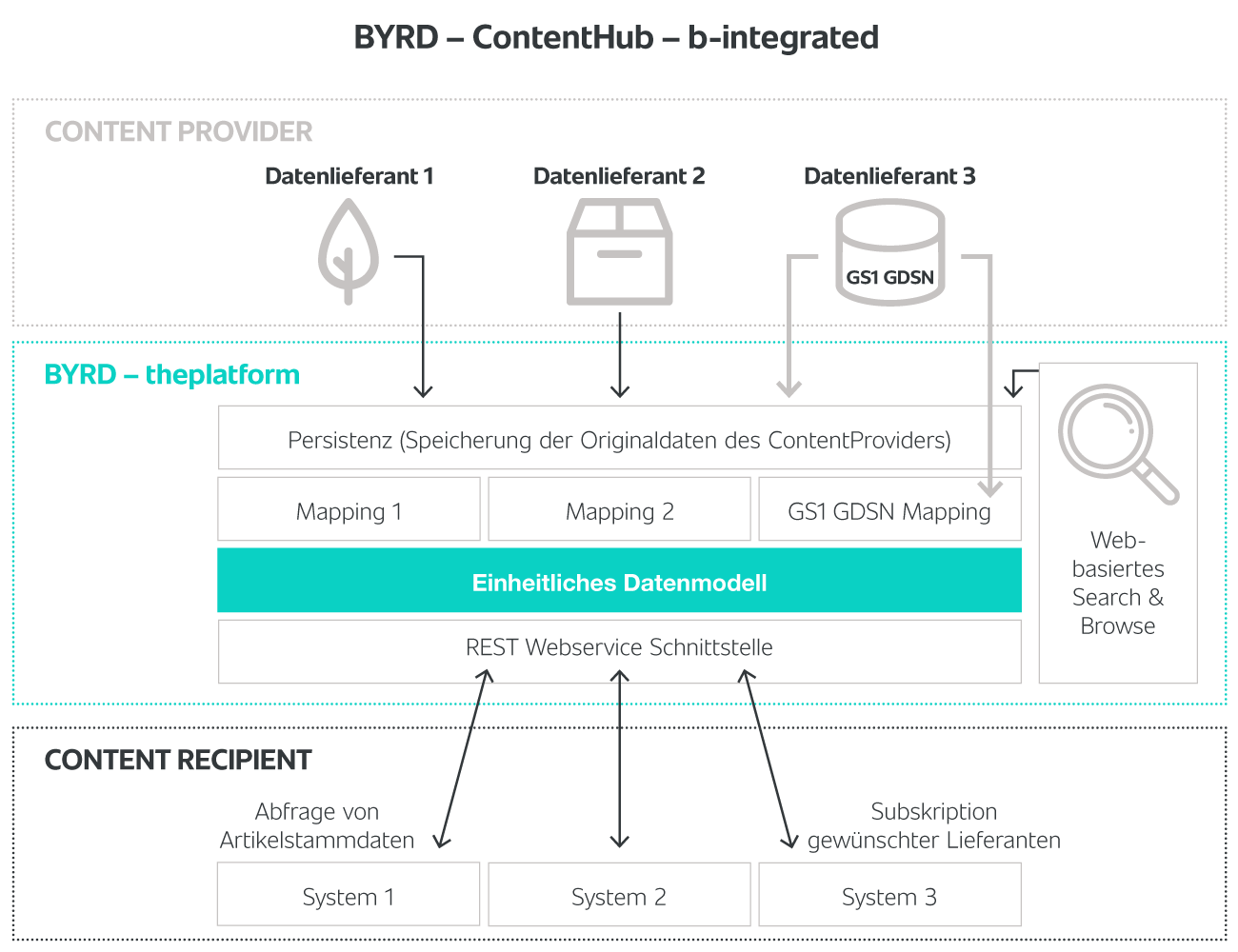


The web frontend for search and retrieval
The web frontend allows users to search the entire article dataset received from all content providers and create an overview of the article and linked images, if available. The details of the received original technical data format can also be viewed and downloaded for research purposes.
A dashboard shows the current dataset with an overview of some key data.
The web frontend for search and retrieval
The web frontend allows users to search the entire article dataset received from all content providers and create an overview of the article and linked images, if available. The details of the received original technical data format can also be viewed and downloaded for research purposes.
A dashboard shows the current dataset with an overview of some key data.
With the help of Elasticsearch, product information can be easily found via a free, user-friendly text search. By using and indexing classification structures (e.g., GPC), articles classified in the same way can be found quickly and easily from the search results. In addition, searches for particular product information are further supported by filter mechanisms in the search result, e.g., on found GPC categories or manufacturers.
With the help of Elasticsearch, product information can be easily found via a free, user-friendly text search. By using and indexing classification structures (e.g., GPC), articles classified in the same way can be found quickly and easily from the search results. In addition, searches for particular product information are further supported by filter mechanisms in the search result, e.g., on found GPC categories or manufacturers.
Operation of the ContentAggregation platform
Operation of the ContentAggregation platform
BAYARD provides and operates the platform as a cloud service in a failsafe Docker/Kubernetes environment.
The company relies on Google services and infrastructure in Europe and the availability of the service is 99.5%. The platform performance is scalable so that even search queries in large data volumes (several million data records) can be processed in real time.


Content aggregation at its best
Aggregate, Map, Deliver – Content aggregation at its best with b-integrated.
Contact us – no matter which project phase you currently find yourself in. We are happy to support you with our experience.
